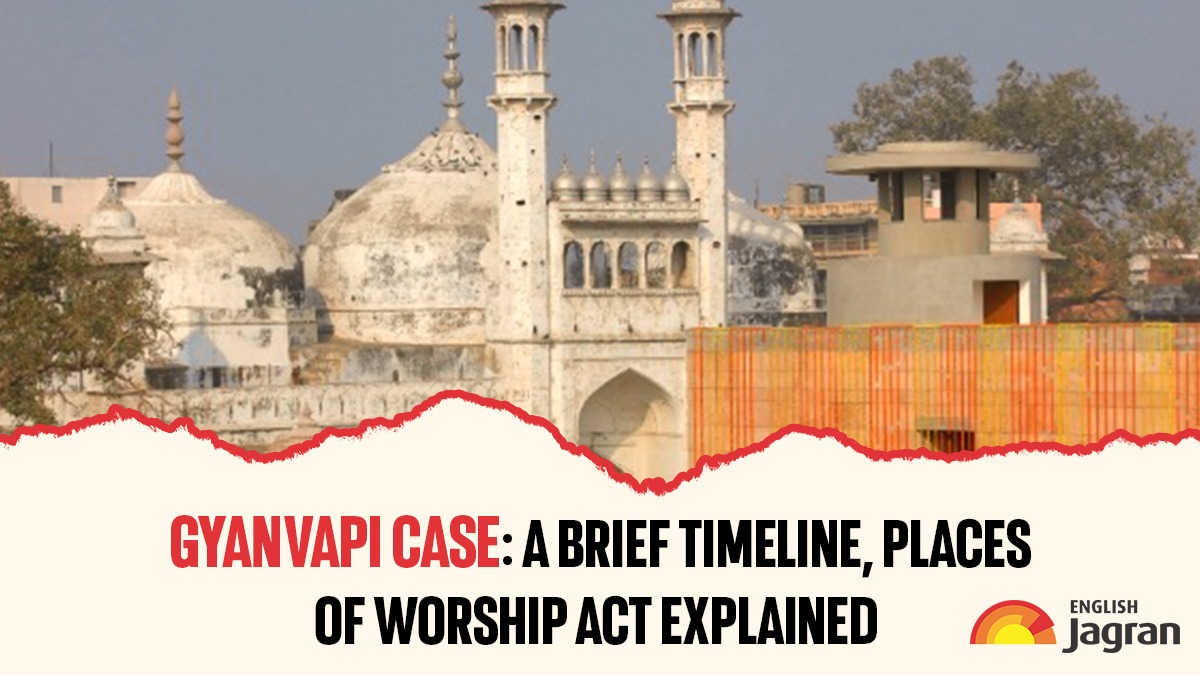- By Shivam Shandilya
- Fri, 15 Sep 2023 12:11 AM (IST)
- Source:JND
Gyanvapi Case: In the Gyanvapi case, the court of district judge Ajay Krishna issued an order on Thursday regarding the destruction of evidence related to Hindu religion in the Gyanvapi complex and the preservation of evidence. After hearing both parties in the case of Rakhi Singh vs Government of India, the court has ordered the collection of evidence and keeping it safe in the safe custody of the district administration or designated officer.
In his order, District Judge Ajay Krishna Vishwesh said that both parties have been heard. Considering all the facts of the case and keeping in mind that a survey is being conducted at the site by the Archaeological Survey of India using scientific methods, it seems appropriate that whatever objects and materials are found from the survey should be related to the facts of this case, Hindu religion and worship system, or the disposal of this matter from a historical or archaeological point of view.
The court has also directed that the objects found during the survey be handed over to the district magistrate or any officer nominated by him who will keep them safe. And, whenever the court summons them, they will have to present the objects in court. The ASI shall make a list of the materials obtained during the survey, file a copy of that list in court, and submit a copy to the District Magistrate.
What Is Gyanvapi Case All About?
The case stems from a petition filed in August 2021 by four Hindu devotees who sought to pray regularly before Hindu idols on the outer walls of Gyanvapi mosque. Since then, the matter has moved to local courts, the Allahabad High Court, the Supreme Court, and then got transferred back to the district court and the Allahabad High Court. In the latest development in this case, the Varanasi court has ordered a survey of the site, excluding the Wuzu khana, or ablution area, where Hindus claim to have found a Shivling last year.
Timeline Of Gyanvapi Case
The case has its roots in 1991, like the Places of Worship Act. The first petition in the case was filed in 1991, demanding the right to worship in the Gyanvapi complex. Among the three demands were the declaration of the entire Gyanvapi complex as a part of the Kashi temple, the removal of Muslims from the complex area, and the demolition of the mosque.
In 1998, a case filed by the Anjuman Intezamia Masjid Committee in the Allahabad High Court held that the temple-mosque land dispute could not be taken by a civil court as it was not permissible by law. The High Court, in response, stayed the proceedings in the lower court for 22 years.
In 2019, the issue was revived when a person named Rastogi filed a plea on behalf of the 1991 petitioner, Swayambhu Jyotirlinga Bhagwan Vishweshwar, demanding an ASI survey in the disputed area.
In 2020. Anjuman Intezamia Masjid Committee opposed the survey in the entire complex.
In 2021, the crucial Places of Worship Act, 1991 was taken up by a Supreme Court bench to examine its substantiality. The bench sought the response of the central government and questioned its validity. In the same year, five Hindu devotees filed a petition in the district court seeking permission to worship deities inside the complex.
In 2022, a Varanasi court ordered a videography survey of the complex. Anjuman Intezamia Masjid Committee challenged the court order in Allahabad High Court. However, the high court upheld the order. Later, a special leave petition was filed in the Supreme Court.
In 2023, a Varanasi district court directed the ASI to conduct the survey, including excavations wherever necessary, to determine if the mosque was built at a place where a temple existed earlier. On August 3, the Allahabad High Court said that it was 'necessary in the interest of justice.'

What Is Places of Worship Act, 1991?
The Places Of Worship Act is described as "An Act to prohibit conversion of any place of worship and to provide for the maintenance of the religious character of any place of worship as it existed on the 15th day of August 1947, and for matters connected there with or incidental thereto." The disputed site at Ayodhya was exempt from the Act. The law has been challenged on the ground that it prevents judicial review, which is a basic feature of the Indian constitution. There are various provisions under this act, which are described under several sections.
How Did Gyanvapi Refresh The Controversy Around The Places Of Worship Act?
The recent row began after five Hindu women filed a plea in Varanasi court relating to the Gyanvapi mosque complex. According to the plea, the mosque was built after demolishing a temple that stood there in the 17th century. Meanwhile, the Muslim side referred to the Places of Worship (Special Provisions) Act, 1991, and its Section 4, that bars the filing of any suit or initiating any other legal proceeding for a conversion of the religious character of any place of worship, as existing on August 15, 1947.

